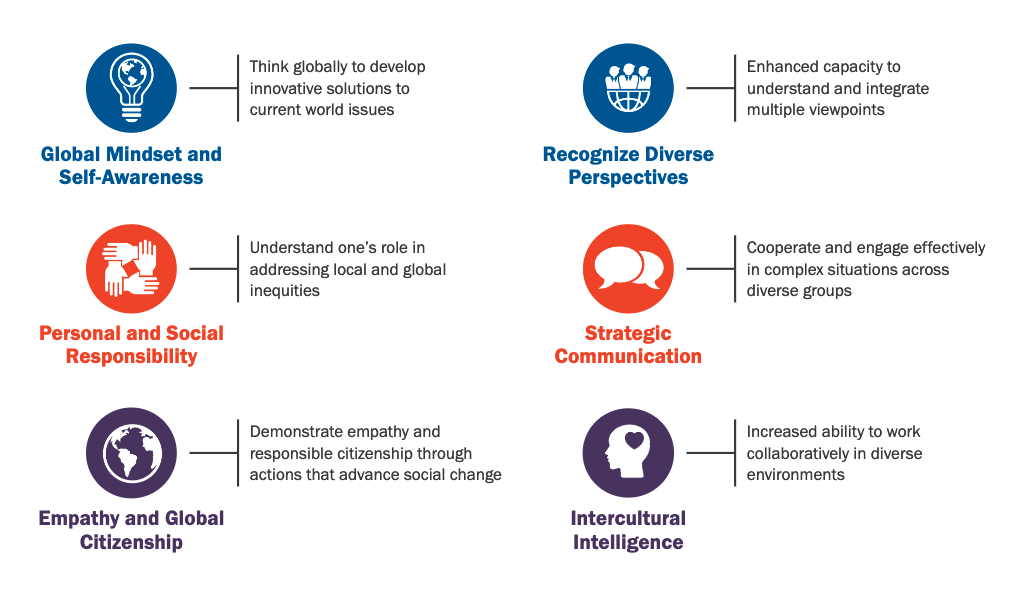Program Information
h5p id=”8″]
Your program curriculum is designed to ensure graduates acquire the essential skills, knowledge, and attitudes appropriate and relevant to both the needs of students and employers.
Program Vocational Learning Outcomes
Program vocational learning outcomes describe what graduates of the program have demonstrated they can do with the knowledge and skills they have achieved during their studies. The outcomes are closely tied to the needs of the workplace. Through assessment (e.g., assignments and tests), students verify their ability to reliably perform these outcomes before graduating.
The program vocational learning outcomes for your program are:
Aerospace Manufacturing Technician (3721)
-
- Complete all work in compliance with current legislation, standards, guidelines, health and safety regulations.
- Apply quality control and quality assurance procedures to meet organizational standards and requirements.
- Use current and emerging technologies to support the implementation of aerospace engineering projects
- Solve mechanical problems encountered in aerospace industry by applying mathematics and fundamentals of mechanical engineering
- Interpret, prepare and modify mechanical engineering drawings for aerospace applications.
- Contribute to the design and the analysis of aerospace components, processes and systems applying fundamentals of mechanical engineering.
- Manufacture, assemble, maintain and repair mechanical components used in aerospace applications.
- Verify the specifications of materials, processes and operations to support the design and production of aerospace components
- Contribute to the planning, implementation and evaluation of aerospace projects
- Assemble electric and electronic components within the aerospace manufacturing sector
- Construct and assemble avionic equipment belonging to both legacy and modern day avionic systems.
Aerospace Manufacturing Technology (3722)
-
- Complete all work in compliance with current legislation, standards, guidelines, health and safety regulations.
- Evaluate, modify and implement quality control and quality assurance procedures to meet organizational standards and requirements.
- Use current and emerging technologies to implement aerospace engineering projects
- Solve complex mechanical problems in aerospace industry by applying mathematics and fundamentals of mechanical engineering
- Prepare, evaluate and modify mechanical engineering drawings for aerospace applications
- Design aerospace components, processes and systems by applying fundamentals of mechanical engineering within required regulations.
- Select and verify the specifications of materials, processes and operations for the design and production of aerospace components.
- Plan and implement projects by applying project management and business principles.
- Assemble and troubleshoot electric and electronic components within the aerospace manufacturing sector.
- Construct and assemble avionic equipment belonging to both legacy and modern day avionic systems.
Essential Employability Skills Outcomes
Essential Employable Skills (EES) are skills that, regardless of a student’s program or discipline, are critical for success in the workplace, in day-to-day living, and for lifelong learning. Graduates will reliably demonstrate abilities in six skill categories:
- Communicate clearly, concisely and correctly in the written, spoken, and visual form that fulfills the purpose and meets the needs of the audience.
- Respond to written, spoken, or visual messages in a manner that ensures effective communication.
- Execute mathematical operations accurately.
- Apply a systematic approach to solve problems.
- Use a variety of thinking skills to anticipate and solve problems.
- Locate, select, organize, and document information using appropriate technology and information systems.
- Analyze, evaluate, and apply relevant information from a variety of sources.
- Show respect for the diverse opinions, values, belief systems, and contributions of others.
- Interact with others in groups or teams in ways that contribute to effective working relationships and the achievement of goals.
- Manage the use of time and other resources to complete projects.
- Take responsibility for one’s own actions, decisions, and consequences.
Global Citizenship and Equity Learning Outcomes
There are six Global Citizenship and Equity (GCE) learning outcomes integrated into Diploma and Advanced Diploma programs as a component of Centennial’s Signature Learning Experience (SLE). The SLE reflects the College’s promise to provide students with a distinctive and inclusive educational experience that builds on a foundation of global citizenship, equity, and social justice. Certificate and Graduate Certificates also include at least two GCE learning outcomes. The GCE learning outcomes are:
- Identify one’s role and responsibilities as a global citizen in personal and professional life.
- Identify beliefs, values and behaviours that form individual and community identities and the basis for respectful relationships.
- Analyze issues of equity at the personal, professional, and global level.
- Analyze the use of the world’s resources to achieve sustainability and equitable distribution at the personal, professional, and global level.
- Identify and challenge unjust practices in local and global systems.
- Support personal and social responsibility initiatives at the local, national, and global level.
Global Citizenship and Equity Portfolio
As a component of the SLE, Diploma and Advanced Diploma program students will complete the Global Citizenship and Equity (GCE) Portfolio. Building the GCE Portfolio is a process of documenting your GCE learning. Each item selected for inclusion in the portfolio demonstrates growth and understanding of Global Citizenship and Equity within your program of study.

Students are encouraged to develop their GCE Portfolio beginning in their first semester. You will add artifacts from coursework and accompanying reflections as well as artifacts arising from co-curricular activities, volunteering, etc. to your portfolio as you progress through the program. You are encouraged to use the ePortfolio tools available on eCentennial, as well as to develop an online professional portfolio presence through LinkedIn and/or other personal websites/blogs.

